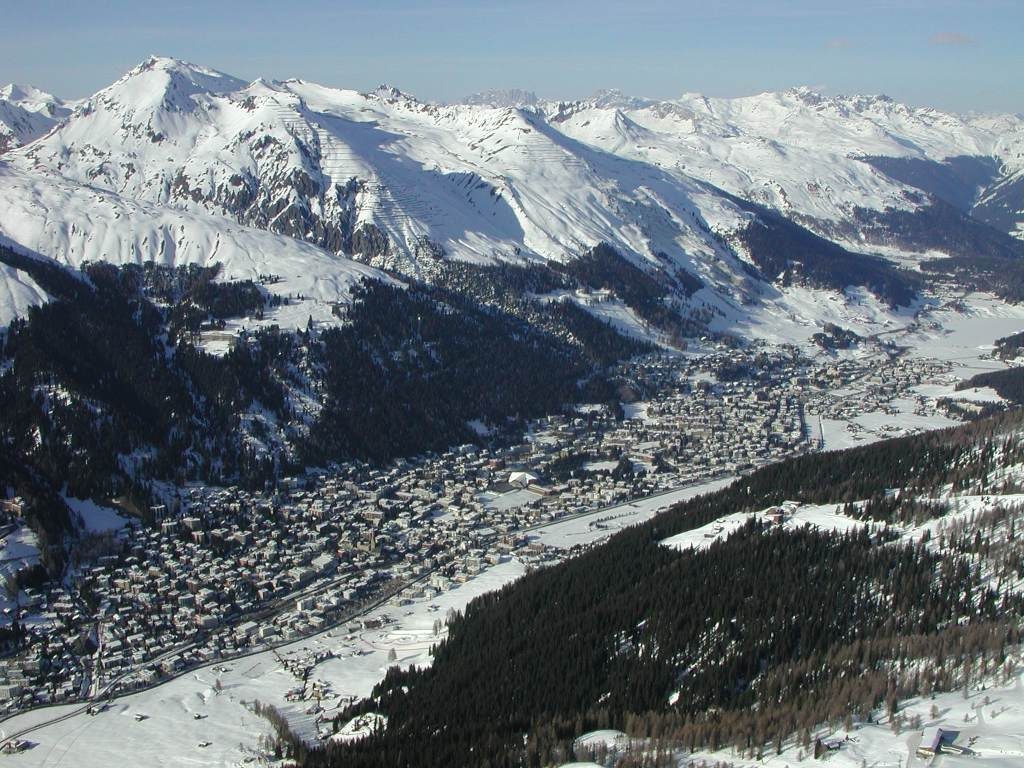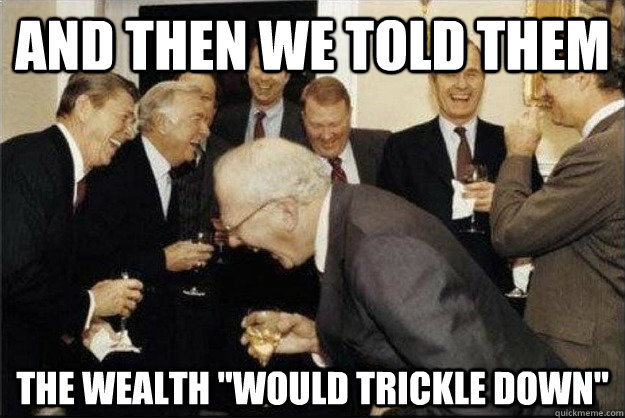
What’s the point of Davos?
The world’s movers and shakers are meeting in Davos this week for the World Economic Forum.
There’ll be gazillions of speeches, meetings, and headlines with pseudo-meaningful quotes about the challenges we face in the world today.What even is ‘Davos’?

Davos is a mountain resort in the eastern Alps region of Switzerland. Every January since 1971, it’s played host to the World Economic Forum, a meeting of around 3,000 top business leaders, political leaders, economists, journalists and a few assorted celebrities.
What’s the point of going?
The point is to discuss the most pressing issues facing the world economy. Every year the meeting has a theme: 2015 was the ‘New Global Context’ (the vaguer, the better, it seems); 2016 was ‘Mastering the Fourth Industrial Revolution’, or how to deal with a digitalized world. This year, it’s 'New and Responsive Leadership' – how to manage discontent in places that aren’t experiencing economic and social progress on the scale they’d expect to, and how to achieve more 'inclusive ' – i.e. a way of increasing the amount of stuff we produce that benefits more people than just those at the very top.

...Isn’t it just one big ‘networking’ event?
Increasingly, the answer is yes. Corporate CEOs could have dozens of client meetings in their four days at the Forum, generating an amount of business that turns the cost of attending into petty cash. ‘Fringe’ events spring up outside of the main conference as companies take over storefronts and arrange private seminars and parties. It makes sense – the delegates at Davos are a concentrated, highly focused target market with – between them – some of the biggest purchasing power on the planet. It’s just about the most efficient place to get the most deals struck in the shortest time.
Do they get any closer to solving those pressing global economic issues?
Yes and no. The big set piece speeches from world leaders tend to be full of platitudes. “Growth must touch everyone to be sustainable,” and “We need to ensure a high employment rate,” are just a few of the strokes of genius to come out of the 2015 conference. No shit Sherlock. Was that really worth the $22,000 ticket…?
Then again, like the business deals, a lot of more hard hitting political chat probably happens behind closed doors too. Not to mention all the impassioned pleas from celebrities which can only really happen at Davos – last year, Leo diCaprio harangued the delegates on corporate greed, and this year Matt Damon’s championing the fight against water waste. Shakira’s there too, with the slightly more ambiguous call to ‘nurture our future leaders’.
With Gordon Brown discussing the next steps to secure new major financing for Education. Shak #LearningGeneration @educommission pic.twitter.com/Zr4vFJoBCD
— Shakira (@shakira) January 17, 2017
But it’s worth noting that a lot of the time, Davos gets their predictions wrong (like last year, when they were totally sure Trump had no chance of getting elected.) So much so that they’ve devoted an entire session to ‘forecasting failure’ this year.
What does it cost to go to Davos?
It’s not cheap. Tickets cost around $25,000 and even travelling there is expensive. The only real way is to arrive is by helicopter, which will add another $10,000 to the bill. Oh, and even the most miserable room in a 3 star hotel is $600 a night, while hiring a chalet for a bit of Davos team building will be well into six figures. Even a hot dog is 40 bucks up there.
So does this actually mean anything for our day to day lives?
Shallow as some of the post-Davos headlines do feel, major economic trends will be discussed – formally or informally. Last year it was the global economic slowdown, this year it’s mainly Brexit and what the world can expect from Trump. So far, there’s been a lot of cold shoulders for Theresa May over Brexit, and a lot of warnings to Trump on his plans to cut down on trade. These things will affect the stock market the way that global leaders’ statements always do – either giving investors confidence, or making them feel uncertain, about our economies, and influencing their decisions on where to put their money – but beyond that, the outcomes aren't super clear.
Now, if Shakira and Gordon Brown would stop looking so serious and would get on stage for a duo together instead...that we’d fork out $22,000 for.



